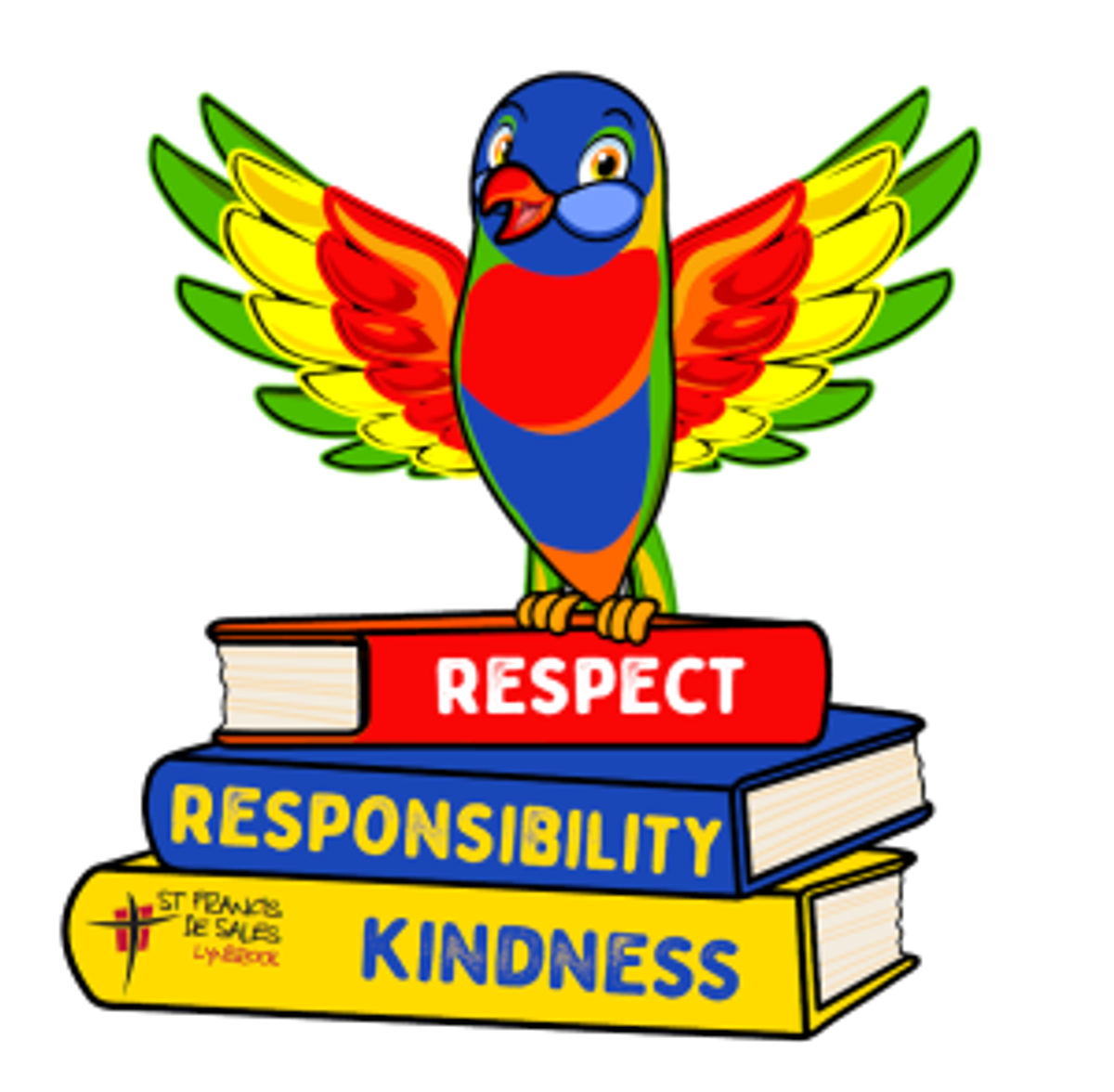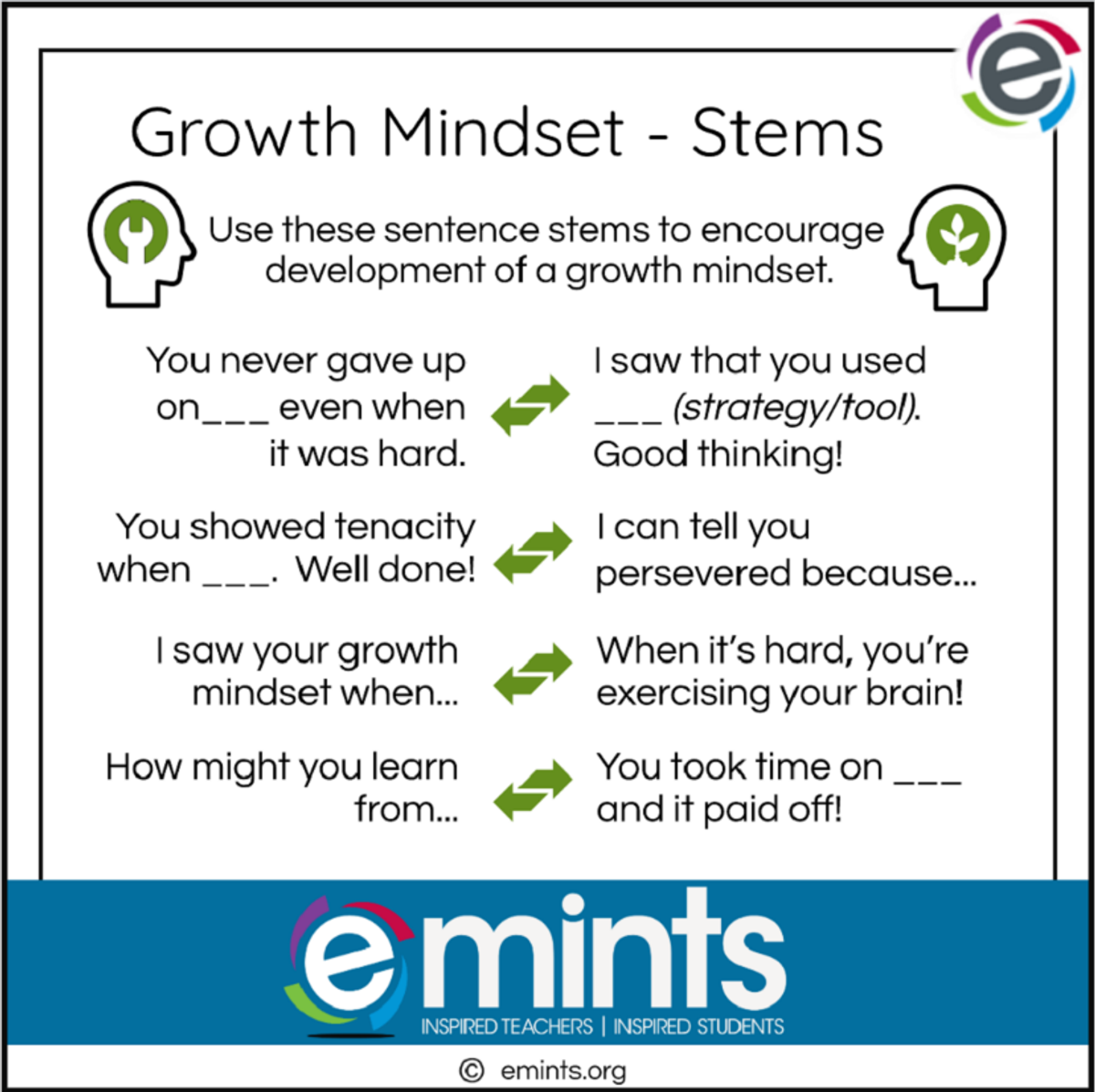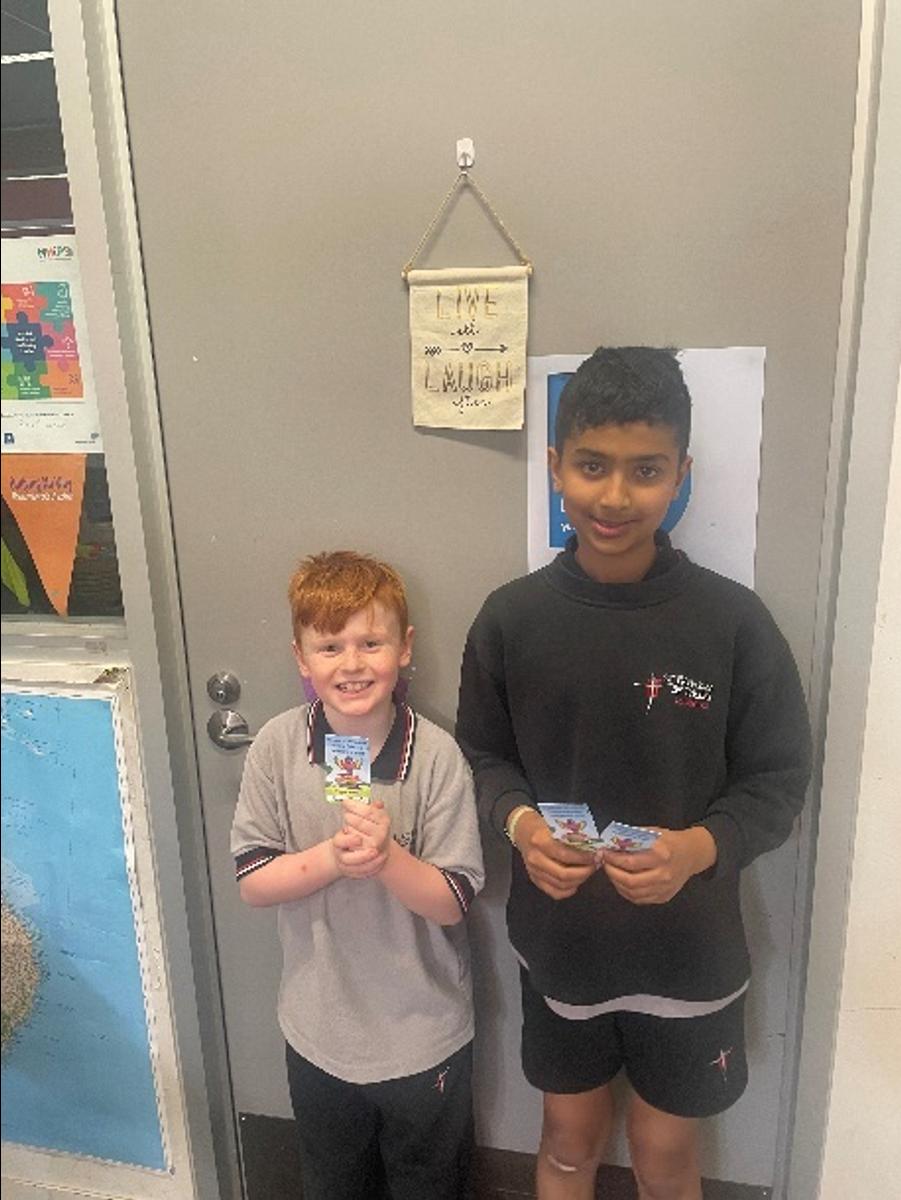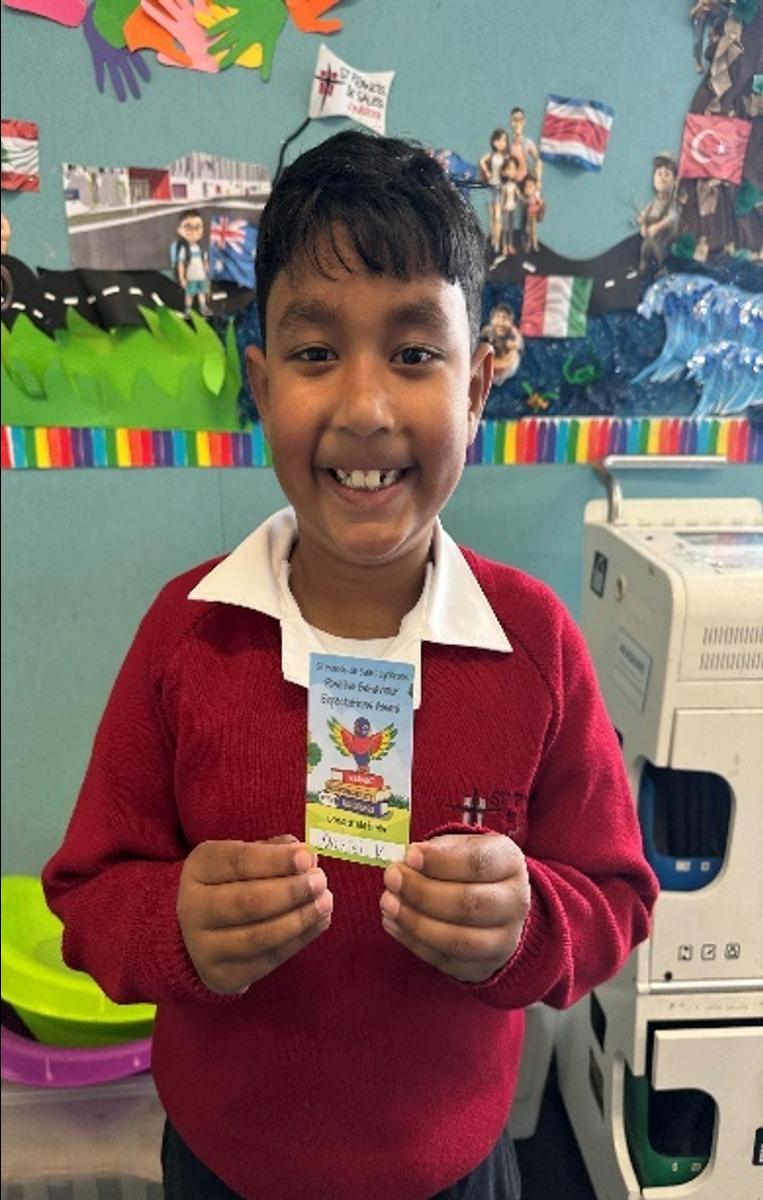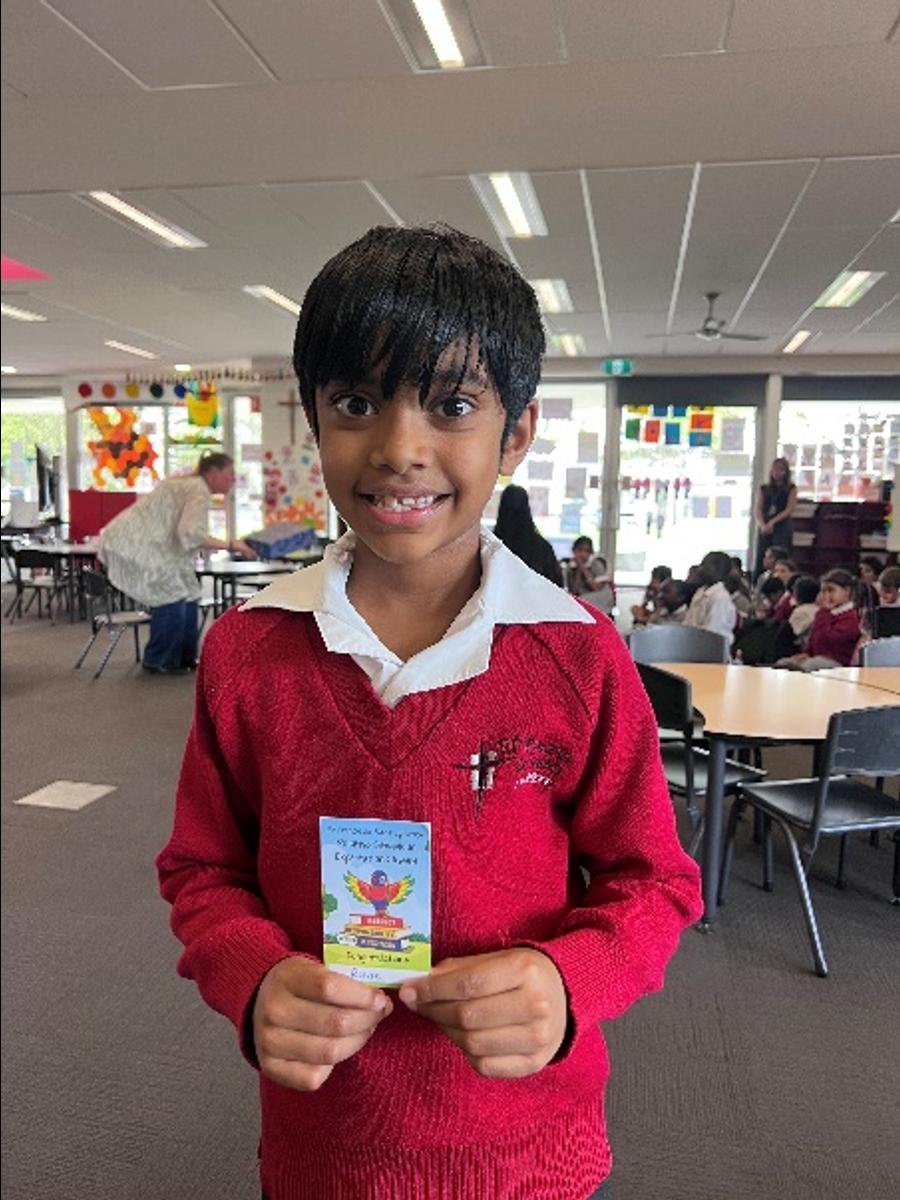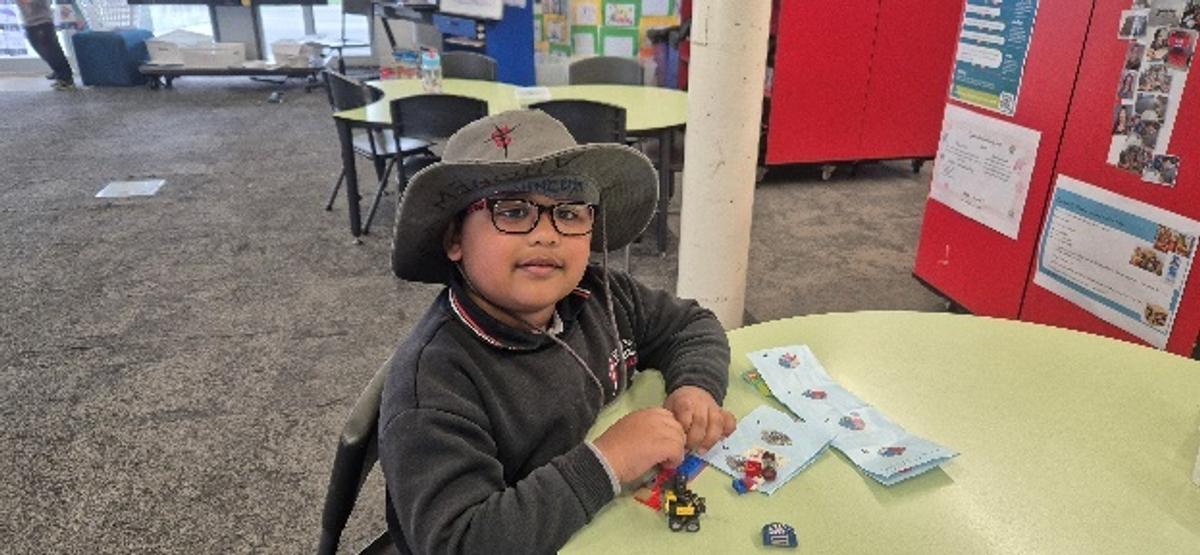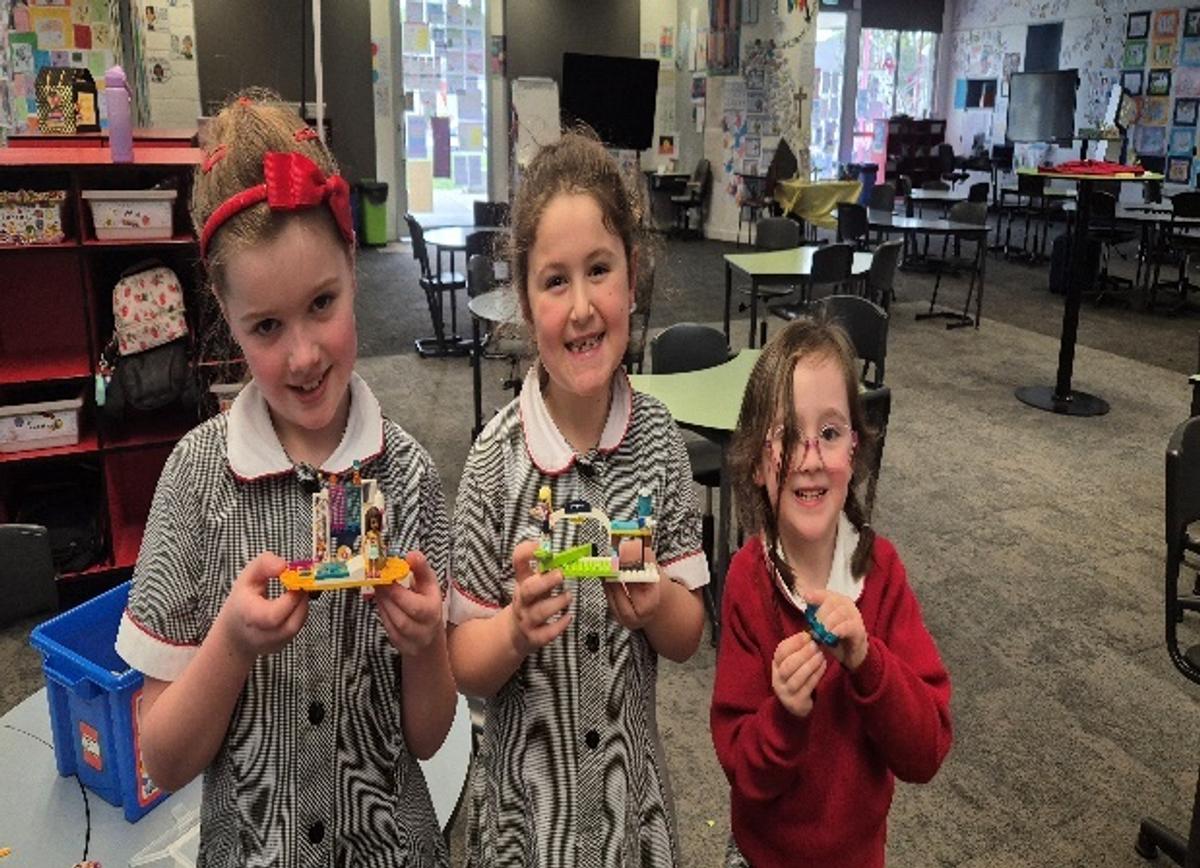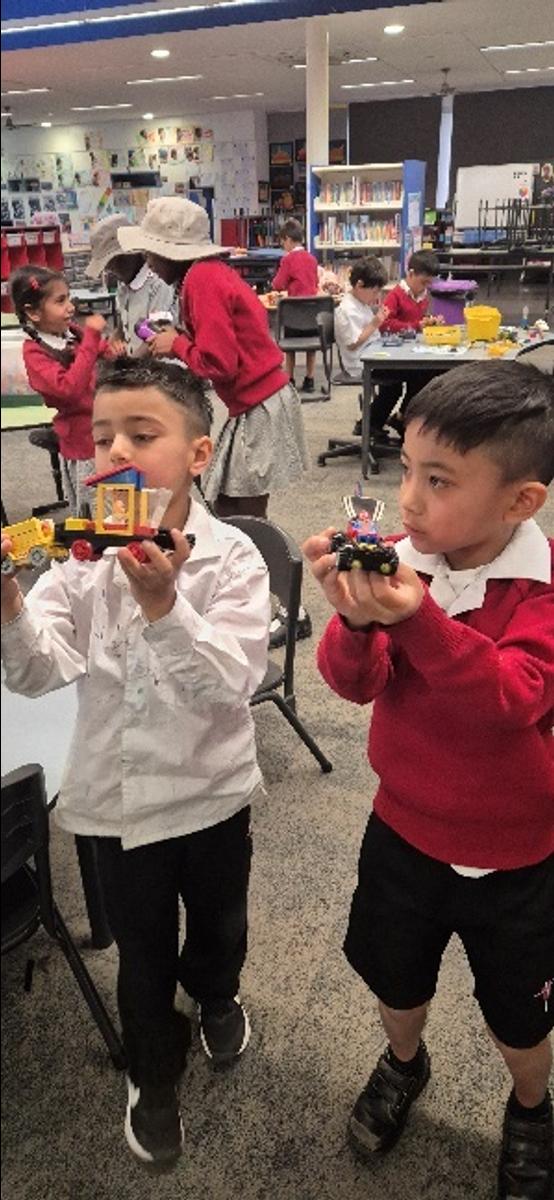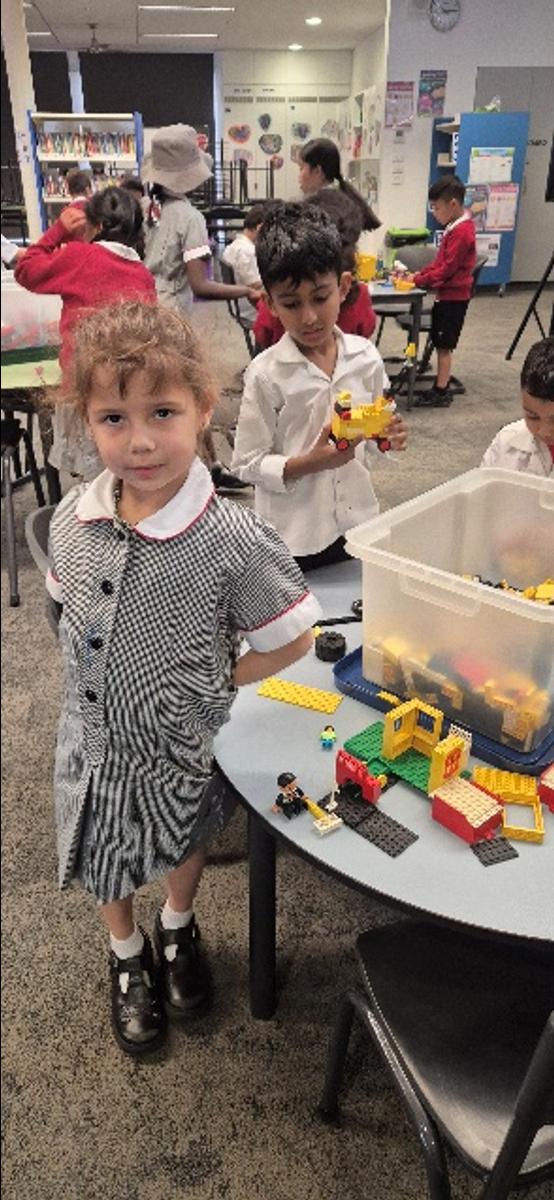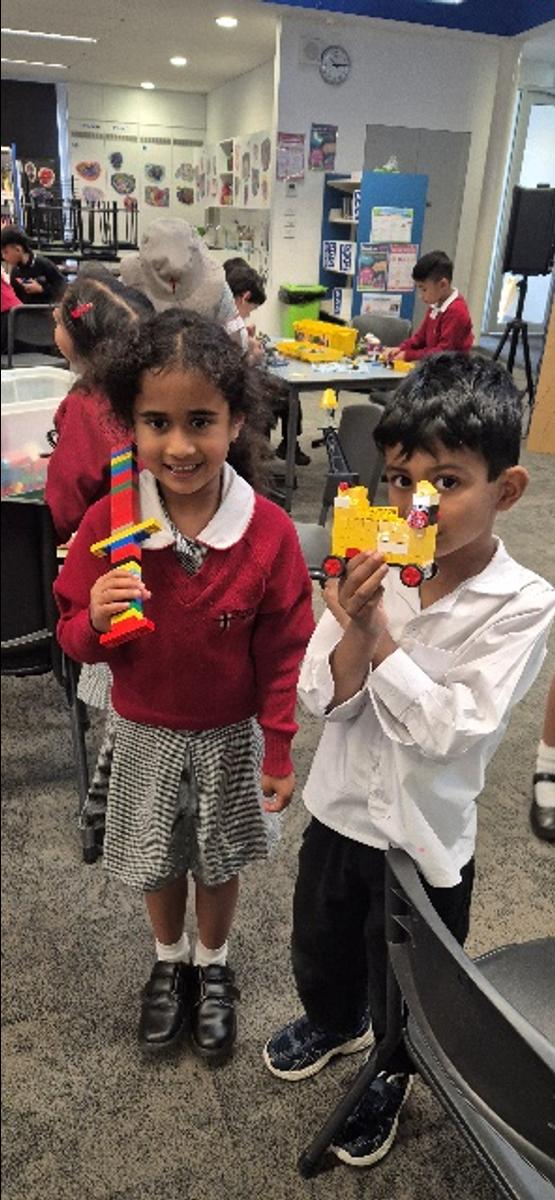Wellbeing
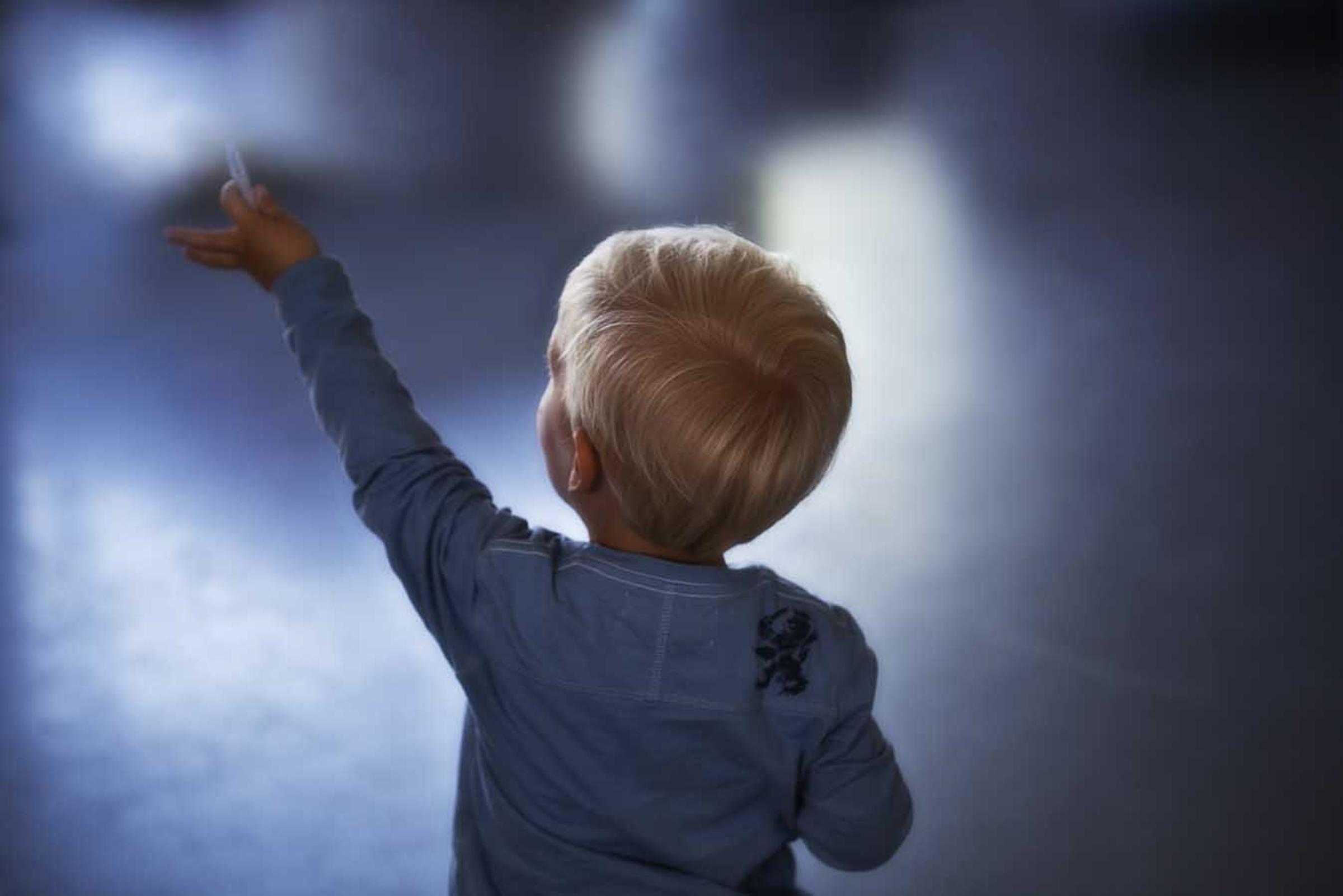
PBL
At SFS, our PBL (Positive Behaviours for Learning) school wide expectations are:
Respect,
Responsibility and
Kindness
For this week’s PBL lesson, we have continued to focus is on RESPECT: Engage and Persevere with all tasks. In this week’s lesson the children learnt about what strategies they can use if they are off task or not wanting to complete set tasks such as having a quick movement break, taking some deep breaths or asking for help. We talked to the children about the importance of having a “growth mindset” where challenges do not stop us from achieving something. You could try using some of these growth mindset stems with your children to help them to practice persevering with tasks even when they are challenging.
Here are some of our lucky raffle winners from last week who have been displaying expected behaviours at SFS. Well done to these children!
LUNCHTIME CLUBS
Students at SFS have an opportunity to participate in a variety of lunchtime clubs. This term, the SRC reps are going to run a lunchtime games club every Wednesday second lunch with a different game to be run each week. This week’s game was Fruit salad.
The juniors have really enjoyed working together to build projects in lego club. With the warmer weather returning, we say goodbye to lego club this year but welcome all students to come along to Games club every Wednesday to join in and play a fun game each week.
TWILIGHT MARKET
We are getting closer to our annual Twilight marker. Only 3 weeks to go! We will have a variety of food trucks to try some delicious tasty treats, some different market stalls, a performance by the choir, some fun activities and some student lead stalls and activities. Make sure you invite your family and friends to come along on Thursday 6th November from 5 pm to 8 pm for a great community night at SFS.
The choir will be performing from 6 pm to 6.30 pm in the Quiet area.
There will be a variety of Food trucks with delicious tasty treats including twisted potatoes, burgers, fish and chips, Vietnamese and Thai food, slushies, coffee, churros, loaded cookies and more.
We have some student lead stalls and Action team stalls as well as a variety of other stalls including toys, jewellery and homewares.
In the event of wet weather, the market will go ahead and run in the school hall. We are looking forward to a great community event!!
World kindness day
World Kindness day is coming up on Thursday 13th November. In Term 4, the SRC are working on some ideas to spread kindness around SFS.
All students are encouraged to have a voice and share their ideas of ways that we can show random acts of kindness around SFS. Stay tuned for more of the SRC ideas soon.
Transition from Primary school to Secondary School
The end of the school year is always an exciting time especially for our Year 6 students who will soon be transitioning to secondary school. While exciting it can also be a scary time of uncertainty.
This fact sheet, from the BeYou website has some helpful information about the transition from primary to secondary school.
The transition from primary to secondary school
Transition strategies must consider that for many children the move to secondary school coincides with puberty. The importance of a successful transition A positive start to secondary school can have long-lasting benefits.
Young people who experience a positive transition into their new school are more likely to:
• feel comfortable, relaxed and valued
• feel excited and motivated to learn
• have good relationships with others
• develop a sense of belonging within the school community.
This positive start can make a big difference to young people’s school engagement, learning and wellbeing. For an introduction to transitions, see Transitions in learning communities.
Understanding behavior
The move into secondary school is one of the most significant transitions in a child’s education. It involves various changes, including:
• changes in the physical environment
• new rules and procedures • changes in relationships with peers, teachers and family
• more structured learning, with a variety of teachers and different learning environments to get used to.
At around the same time as the move to secondary school, children experience biological and emotional changes as they go through puberty anywhere between ages 8 to 14 or even later- it’s completely normal for children and young people to go through puberty at different times. The physical, social and emotional changes associated with puberty can have a strong effect on children and young people’s relationships with friends, families and educators. This period of adolescent development is also related to emotions and behaviours that can lead to difficulties at school. The timing of puberty at around the same time as the move to secondary school can make this a particularly demanding transition for some young people.
Common feelings and concerns
Children can experience a range of emotions about the transition. They may feel excitement about the prospect of going to a new school, as well as nervousness about what lies ahead. Children may also feel sad or angry about leaving their current school and the positive relationships they’ve established with educators and friends.
Common concerns include:
• losing old friends and making new friends
• being bullied
• getting lost and getting to class on time
• remembering what books and other equipment is needed for each class
• following a timetable • dealing with different educators
• homework.
Research suggests that some young people have greater concerns about the transitions. The good news is that these concerns tend to lessen in their first year at the new school. Some children can find the transition overwhelming and need extra support Factors like changes in peer groups, teachers, expectations or routines can be challenging. Some signs that children may be experiencing difficulty include:
• withdrawal or difficulty participating in class discussions
• exhibiting low confidence or self-esteem
• increased avoidance of tasks
• having a short temper or behavioural outbursts
• difficulties with maintaining friendships
• being socially isolated.
Trusting and supportive relationships
Strong relationships between children, their families and educators enhance the wellbeing of children. Primary and secondary schools should aim to develop effective transition policies. A genuine sense of partnership between the schools can help build understanding of each environment and help transfer information about students and families from one school to another. Here are some key points to consider:
• Establish, train and support a team of key people to coordinate transition practices.
• Establish and maintain relationships with wider school community networks and families.
• Ensure policies and practices reflect, and include community diversity – promoting inclusive practices
How can primary schools support a smooth transition?
Transition support and activities should start 12–24 months before students begin secondary school, with primary and secondary schools communicating in a handover process. Some effective strategies to help support the transition include the following:
• Primary school educators can prepare all children for the transition – beginning in the year or years before moving schools. Strategies include talking to students about secondary school, visits from secondary school staff and students, as well as visits to the new school.
• Teach students how to recognise their feelings and where to go if they feel they need help.
Providing general problem-solving skills will help students during the transition, and beyond.
• Secondary school educators can help students settle into their new environment with orientation activities, such as study skills workshops, campus tours and identifying support resources, such as the student counsellor and year coordinator, in the secondary school.
• Educators can use the BETLS Observational Tool to observe and document behaviour to help identify students that may find the transition challenging and need additional support.. Research shows that primary school educators are well placed to identify which students are likely to encounter difficulties with the transition to secondary school.
• Educators can connect with families and communities – they have rich information about their child’s needs, which can inform planning of programs and strategies for individual students. Giving families and community suggestions for how they can support and develop their child’s social and emotional skills, coping and help-seeking strategies can also be helpful.
I am available at school Monday to Thursday. If any parents have a wellbeing concern they would like to discuss, please do not hesitate to contact me at school or send me an email rlenko@sfslynbrook.catholic.edu.au
POSITIVE QUOTE OF THE DAY
Rachel Lenko
Mental Health and Wellbeing Leader
rlenko@sfslynbrook.catholic.edu.au

